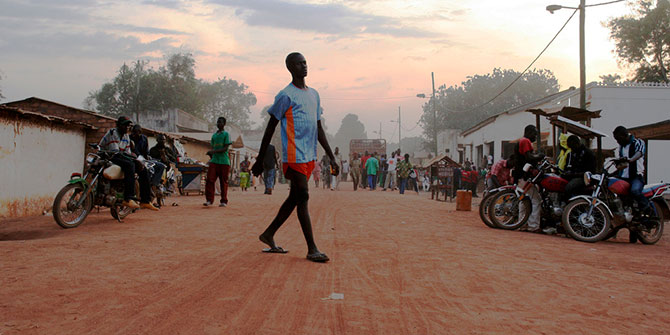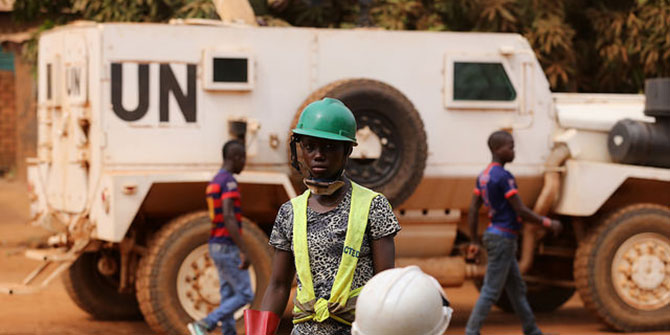Mark Kersten and Patrick Wegner of Justice in Conflict have had an incredible amount of feedback on their posts about Kony 2012. Here, Mark addresses the criticisms received.
Over the past few days, many readers have commented on the blog, Twitter, Facebook and I want to thank you all for that. Thanks to everyone who took the time to read our perspective. We have contributed to an incredibly important debate and have begun the process of refuting the idea that awareness must come at the expense of understanding.
It is in contributing to understanding the issues, and not site hits or blog stats, that I feel that both Patrick’s and my post have been a success. I was also very happy that Invisible Children themselves have responded to the critiques that were levied, although I will leave it to readers to judge whether their responses are adequate.
My position remains the same. I remain opposed to the Kony2012 video and campaign and not because I don’t believe that increasing awareness is wrong. Many have commented to the effect that “you have a point, but knowing about this is success in its own right.” But awareness for awareness’ sake is not only futile but potentially dangerous (see here, here and here). The diagnosis of the “LRA question” that the Kony2012 clip makes is so far from any truth or reality that the prescription it offers – or instills in the minds of those who watch the film with an uncritical eye – may end up doing a disservice to victims and survivors.
Others have suggested that the conclusion I reach is that unless the campaign “has it perfect”, we should do nothing. In other words, I’m unfairly raining on the Kony2012 parade. This could not be further from the truth. I accept that viral campaigns can be useful and that they inevitably must simplify issues as complex as the conflicts in northern Uganda and LRA-affected areas. The question is: at what point does simplifying an issue pass a threshold where it no longer even approximates reality and becomes a detrimental to a cause? I continue to believe the film, Kony2012 (again, not Invisible Children as a whole) has passed this threshold – by miles.
I have also been told that I focus too much on the story. I agree. As far as I am concerned, the narrative and “story” of the conflict is vitally important. The narrative you buy into will determine which solutions you imagine as possible and appropriate. In the context of Kony2012, the story plays directly into the hands of the Government of Uganda by asserting that the major – even only – problem is Joseph Kony and, therefore, that the solution is to “stop” him. The story of the “LRA question” is part of the solution – just not this version of it.
I will freely admit that I do feel some guilt for engaging and spending this much time on Kony2012. The campaign has deflected attention from other crises, not least the ongoing deterioration of the situation in Syria. The challenges facing LRA affected areas need attention, but I still do not understand the decision to unleash a viral campaign at a time when public attention was focused on a crisis that may have killed some 10,000 civilians in the last year alone. Kony2012 may have been one of the worst things to happen to Syrians fighting against the Assad regime – and all that for a campaign utterly divorced from reality.
A common thread in the comments is that I provide no solution – only a critique – to the “LRA question”. Of course, the post was intended to be a critique, but I am more than happy to offer my view on what the best way forward is: support a peaceful resolution to the conflict by reigniting negotiations and support those organizations and individuals who are trying to achieve these aims.
There are many organizations in northern Uganda, such as the Acholi Religious Leaders’ Peace Initiative, as well as abroad, who want to see peace talks resume. There is much to be learned from the previous talks between the Government of Uganda and the LRA in Juba, from 2006-08. Not least that all parties involved in the conflict – the LRA, the Government of Uganda, Democratic Republic of Congo, the Central African Republic, South Sudan and Sudan – must be involved and committed to the peace process. In taking the lessons of past experience, energy can be harnessed to get back to the negotiating table.
In this context, it is important to remember the actual empirical record of military operations to fight the LRA. In the past decade or so, massive military operations (notably Operation Iron First and Lightning Thunder) have failed to “stop” Kony or eradicate the LRA. On the contrary – they have consistently resulted in an LRA backlash against civilians, in more abductions and in more killings of innocent human beings. In stark contrast, what happened during peace negotiations was that the violence subsided. There has been no LRA attack in northern Uganda since.
Lastly, I will reiterate a point that seems to have been lost in the fray: I am not against Invisible Children as an organization nor am I against raising awareness. But I reject the idea that awareness of a problem must come at the expense of understanding it. Measured against raising awareness, Kony2012 is undoubtedly a success – just take a look at the number of people who have viewed the video as well as the funds they have raised. Measured against an adequate understanding of the realities facing LRA-affected communities and the attitudes of northern Ugandans, however, Kony2012 remains a failure.






I cud not understand who has written this post ..whether Syerramia, Mark or Patrick..but i understand the writer qualifies to be a diplomat or a politician..rightly so in Asia..please come here and be the saviour ninja..when u are done with criticizing someone in africa..
From my perspective, invisible children is just an organization in front of the might of Kony or for that matter Uganda military or US govt whom they are negotiating. The good part is they have started a momentum using a method unheard till now and we all need to contribute towards it as a human being.
Anup
This post is written by Mark.
You couldn’t have said it better. As a Ugandan working closely on justice issues in Northern Uganda, to say that I was disappointed by Invisible Children’s advocacy strategy is an understatement. The Northern Uganda situation as portrayed in the video is far from the truth. I would have expected a well meaning campaign to focus on the need for the Government of Uganda to provide reparations for victims of this conflict. Pushing for the arrest of one man does not answer this question which is currently of utmost interest to the people of Northern Uganda. To make the Northern Uganda situation all about one man is despicable. so what if the world knows about Kony?
Every journey starts with one step…lets try one by one. Why are we on combat and attack mode..i fail to understand. IC is just 1 NGO, please take ur request to other NGOs and rest in peace.
This is a quite ridiculous piece of critic. LRA has been committing atrocities for decades. Neo-conservatives always like pointing fingers away from christian inspired terrorism to make themselves feel morally superior. Shame on you.